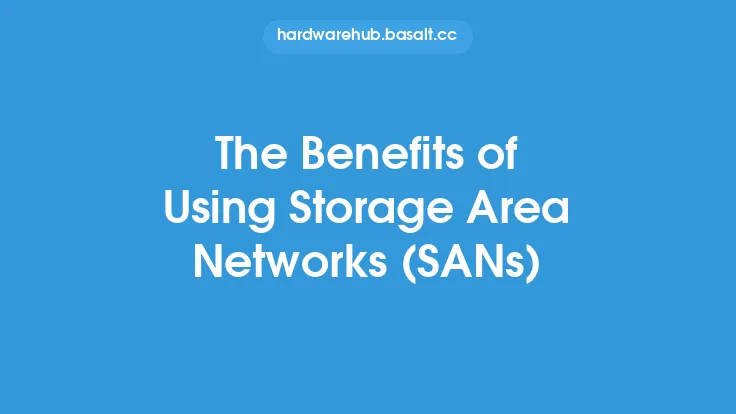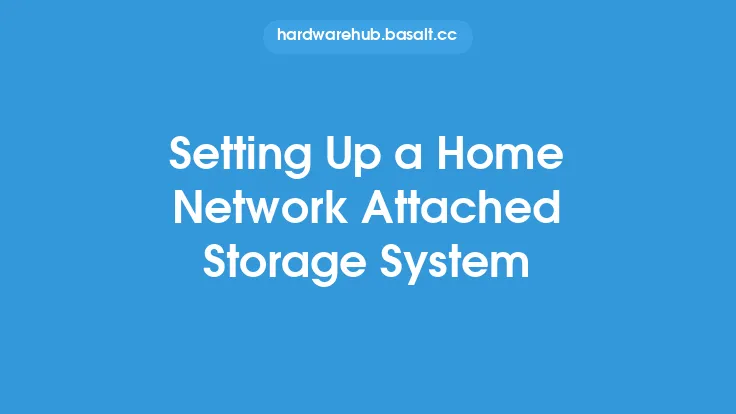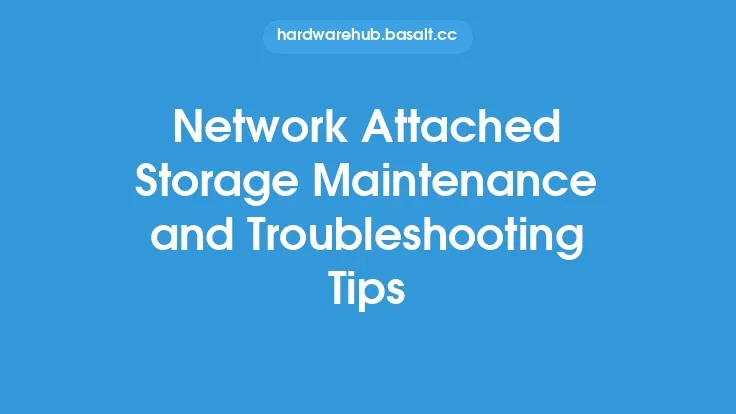Using a network attached storage (NAS) device can bring numerous benefits to individuals and organizations alike. One of the primary advantages of NAS is its ability to provide centralized storage for multiple devices on a network. This means that users can access and share files from any device connected to the network, making it an ideal solution for collaborative work environments, home networks, and small businesses. With a NAS device, users can store and manage large amounts of data, including documents, videos, music, and photos, in a single location, making it easier to organize and retrieve files as needed.
Advantages of Centralized Storage
The centralized storage provided by NAS devices offers several advantages over traditional storage methods. For one, it eliminates the need for multiple devices to have their own separate storage, which can lead to data duplication and inconsistencies. With NAS, all data is stored in a single location, making it easier to manage and maintain. Additionally, centralized storage makes it easier to enforce access controls and security measures, such as user authentication and encryption, to protect sensitive data. This is particularly important for businesses and organizations that handle confidential or proprietary information.
Scalability and Flexibility
Another significant benefit of NAS devices is their scalability and flexibility. As storage needs grow, NAS devices can be easily expanded by adding more drives or upgrading to higher-capacity models. This makes it an ideal solution for businesses and organizations that experience rapid growth or have fluctuating storage needs. Furthermore, NAS devices can be configured to support multiple protocols and operating systems, making it possible to integrate them into existing networks and infrastructure. This flexibility also allows users to access their data from a variety of devices, including desktops, laptops, mobile devices, and even virtual machines.
Data Protection and Redundancy
NAS devices also provide robust data protection and redundancy features, which are essential for ensuring business continuity and minimizing data loss. Many NAS devices come with built-in redundancy features, such as RAID (Redundant Array of Independent Disks), which allows data to be mirrored or striped across multiple drives. This provides a high level of data protection against drive failures, which can help prevent data loss and downtime. Additionally, NAS devices often support backup and replication features, which allow users to create copies of their data and store them in separate locations, providing an additional layer of protection against data loss.
Performance and Speed
In terms of performance and speed, NAS devices have come a long way in recent years. Many modern NAS devices are equipped with high-performance processors, ample memory, and fast storage media, such as solid-state drives (SSDs). This makes them capable of handling demanding workloads and providing fast data transfer speeds, even in high-traffic networks. Additionally, many NAS devices support advanced networking protocols, such as 10GbE and SMB 3.0, which provide high-speed data transfer and low latency. This makes NAS devices an ideal solution for applications that require high-performance storage, such as video editing, virtualization, and database storage.
Security and Access Control
Security and access control are also critical benefits of NAS devices. Many NAS devices come with built-in security features, such as encryption, firewalls, and antivirus software, which provide a high level of protection against malware, unauthorized access, and data breaches. Additionally, NAS devices often support advanced access control features, such as user authentication, role-based access control, and auditing, which allow administrators to control who has access to sensitive data and track changes to files and folders. This provides an additional layer of security and helps to ensure that sensitive data is protected against unauthorized access.
Cost-Effectiveness
Finally, NAS devices are often more cost-effective than traditional storage solutions, particularly for small businesses and home users. By providing centralized storage and eliminating the need for multiple devices to have their own separate storage, NAS devices can help reduce storage costs and minimize the need for expensive hardware upgrades. Additionally, many NAS devices are designed to be energy-efficient and have low power consumption, which can help reduce energy costs and minimize the environmental impact of storage infrastructure. This makes NAS devices an attractive solution for individuals and organizations looking to reduce their storage costs and improve their overall efficiency.





